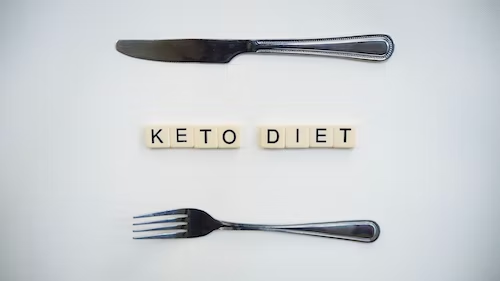The metabolic state of ketosis has various positive health effects. Your body starts utilizing ketones, which are made from fat during nutritional ketosis, as your primary energy source. Ketone bodies are another name for ketones. The keto diet entails significantly reducing your carb intake and substituting fat consumption.
This facilitates your body’s entry into the metabolic state of ketosis. When the body’s preferred source of energy for many processes, glucose or carbohydrates, becomes few, ketosis sets in. Starting a keto diet requires some preparation. Here is how you get your body accustomed to a keto diet.
Cutting Carbs
The most well-known method of entering and maintaining ketosis is through limiting carbohydrate consumption. However, the number of carbohydrates you should eat to support ketosis might vary from person to person and can range from less than 20 grams to as much as 70 to 100 grams of carbohydrates per day for people who are very active.
Your precise ketosis carb requirements depend on total calorie requirements, body composition (% body fat), and level of fitness. For example, you can suppose that approximately 5% or less of your calories should come from carbohydrates, which for the majority of people equates to about 20 grams per day. Consider starting at 50 grams of carbs or more if your calorie requirements are higher or you are really active.
Increasing Healthy Fat Intake
You can increase your ketone levels and progress into ketosis by consuming a lot of nutritious fats. In fact, a very low-carb ketogenic diet encourages a high fat intake in addition to limiting carbs. Typically, 60 to 80 percent of the calories in ketogenic diets for weight loss, exercise performance, and metabolic health come from fat.
Even more fat is present in the traditional ketogenic diet used to treat epilepsy. Usually, 85 to 90 percent of calories are from fat. Extremely high-fat consumption, however, does not always result in greater ketone levels. 11 healthy participants participated in a 3-week study comparing the effects of fasting on breath ketone levels. Overall, it was discovered that ketone levels were comparable between persons who consumed 90% of calories from fat and those who consumed 79% of calories from fat.
Using Ketones Supplements
According to certain studies, ketone supplements may potentially speed up the process of entering ketosis and cause a ketotic state without a ketogenic diet. When Medium Chain Triglycerides (MCTs) are used, though, this strategy is believed to be advantageous. That’s why when looking for ketone supplements, find the best keto gummies and powder to complement your keto preparation. This strategy shouldn’t be used as a long-term replacement for a balanced ketogenic diet. Many advocates of the ketogenic diet believe that the act of carbohydrate restriction and diet-induced ketosis is what makes this particular dieting effective.
Exercise More
Increased activity can aid in entering the ketosis state. The glycogen stores in your body are depleted during activity. When you eat carbohydrates, which are broken down into glucose, these stores are often supplied. Glycogen is formed from glucose that isn’t immediately needed. However, glycogen levels stay low if carbohydrate consumption is reduced.
Your liver responds by producing more ketones, which your muscles can use as an alternate fuel source. Although exercise promotes ketone synthesis, it may take your body 1-4 weeks to get used to using fatty acids and ketones as your main sources of fuel. Physical performance may momentarily decline during this period.
Increasing Protein Intake
Getting enough protein in your diet is crucial for muscular growth. This is due to the fact that protein serves as the foundation for muscles, thus if you want to gain muscle, you must ingest more protein than your body can naturally handle.
There is some worry among keto dieters about having too much protein since it may stimulate your body to use gluconeogenesis, which prevents your body from producing ketones by turning amino acids from protein into sugar.
Your activity level, body type, and general nutrition all affect how quickly you can enter ketosis. Cutting carbs for a day won’t cause the situation to change. Your body needs some time to acclimatize because it has lived off carbohydrates its entire life. You have to use some of the carb fuel you have left to complete this process.
Depending on how many carbs you generally eat each day and your total muscle mass, the number of stored carbs you have can vary from person to person. More muscle indicates more storage since you store these carbohydrates in your muscles. Your degree of physical activity is also important; the more you exercise, the faster your glycogen stores will deplete.


